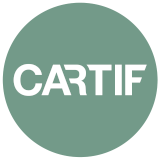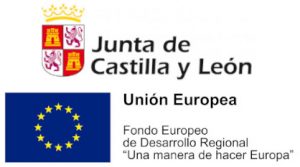Knowledge Transfer
PROGRAMMES R&D

PROGRAMMES R&D
Knowledge Transfer
Description
The contracting by the company of knowledge transfer services to research organizations that act as qualified providers may be considered eligible projects:
The eligible transfer services are:
- The acquisition of real rights (assignment and license) on patents and utility models.
- Technological pilot projects or innovative demonstration actions that allow the company to design and / or improve its products and / or processes by incorporating new knowledge or technologies. The eligible actions will be tests, tests, feasibility reports applied to the process or product, and other technological services necessary for the proper completion of the projects.
- Projects whose object is to obtain prototypes that involve the valuation or transfer of research results generated by research teams of suppliers.
Maximum grant of € 100,000 for each transfer service.
The project budget, this is the cost of knowledge transfer, will be more than € 5,000.
CARTIF participation
Cartif has been participating in the R&D financing program of the Junta de Castilla y León since its beginning, through the development of technology for companies and supporting the market launch of developed technologies.
CARTIF as a technological center regulated by RD 2093/2008 must achieve that at least 30% of its turnover comes from private funds of companies. That is why the financing of the Institute of Business Competitiveness of Castilla y León is a driving lever to achieve compliance with this indicator.
The Center has collaborated with companies from many sectors contributing to the improvement of their competitiveness, improving and giving greater value to their processes and products.
Program summary sheet
Summary file in PDF format:
DownloadThematic blocks:
Priority 1: Agrifood as a catalyst for the extension of innovation on the territory.
Short description:
Agrofood continues to be a fundamental part of the industrial fabric in Castilla y León, concentrating a large number of family businesses. For this reason, it is a priority for the region to take advantage of the capacity of macroactivity as an engine of wealth and employment and to include an innovative approach that allows it to take advantage of all its indisputable potential.
The exploitation of this thematic priority will allow Castilla y León to position itself in the new trends of Horizon 2020, especially in bioeconomy models, applying research and innovation to reconcile food security and the sustainable use of renewable resources with industrial ends, achieving thus the exploitation of new markets and the diversification of food and bioproducts: Circular Economy and Sustainability.
The areas that should concentrate efforts within this priority are listed below:
- Scope 1.1: R&D&I in Agriculture and animal production.
- Scope 1.2: R&D&I in Food
- Scope 1.3: R&D in Bioenergy and Bioproducts
Priority 2: Manufacturing and processing technologies, especially in transportation sectors such as automotive and aeronautics, making materials and components the keys to leadership and sustainability.
Short description:
The macro activity of Automotive, Components and Equipment has, in Castilla y León, an important economic weight as a consequence of a deep-rooted industrial tradition and the presence of large manufacturing companies. This set of activities has a clear exporting vocation and coexists with the need for integration in global value chains. As a direct consequence of this vocation, internationalization is crucial for its competitiveness.
Within the framework of this thematic priority, the potential that the Region presents to position itself competitively in the Industrial Digitalization or Industry 4.0, Circular Economy and Sustainability models proposed by the new national and European trends is indisputable. To achieve this, Castilla y León will build on the track record and experience of the Automotive and component and capital goods industries in these areas (advanced manufacturing, materials, ICT and clean technologies). In the field of the aeronautical sector Castilla y León must be based on the purchase and sale of knowledge to achieve full integration in major European initiatives such as Joint Undertakings or European Innovation Partnership – EIP.
The areas on which efforts need to be focused within this priority are listed below:
- Scope 2.1: R + D + I in Transportation
- Scope 2.2: R & D & I in advanced Design and Manufacturing
- Scope 2.3: R + D + I in advanced materials
Priority 3: Application of knowledge and technology in Health and Social Care, Demographic Change and Well-being, to improve the quality of life of citizens.
Short description:
Within this thematic priority, Castilla y Leon has pharmaceutical product manufacturing activities, with an important weight in regional exports, with health, social health and social services activities. It also has several highly active business clusters in this field. Additionally, the region has an important healthcare research system made up of healthcare (clinical) and university (preclinical) researchers. Finally, it is in this area that the regional government is launching its first innovative public purchasing initiative.
This base gives Castilla Leon, within this thematic priority, a great opportunity to achieve a competitive position in the models of health digitization, active aging and innovative, efficient and sustainable health proposed by new national and European trends, in in particular, in line with the communication from the European Commission on effective, accessible and robust healthcare systems.
The areas that should concentrate efforts within this priority are listed below:
- Domain 3.1: Biomedical research
- Scope 3.2 : Advanced materials
- Area 3.3: Improvement of care for the chronic and / or dependent patient
- Domain 3.4: Technologies for Social Inclusion
Priority 4: Natural Heritage, Cultural Heritage and the Spanish Language and endogenous resources that are the basis of territorial sustainability.
Short description:
The Spanish Language, Cultural Heritage and Natural Heritage are essential values of the identity of Castilla y Leon. The environmental variety and the wide cultural heritage offer a relevant factor of economic development and are an expression of quality of life. To this is added the Spanish language, as an endogenous resource of the region around which an economic activity can be founded, based on the study and diffusion of it.
On the other hand, the processes of adding industrial value to the Community’s forest and mineral endogenous resources can be a vehicle for extending innovation to the rural world.
Consequently, Castilla Leon is in an optimal situation to exploit its qualities and thus position itself within the models of cultural industries, the circular economy, fight against climate change and efficient use of resources proposed by new national and European trends.
The areas that should concentrate efforts within this priority are listed below:
- Scope 4.1: Cultural Heritage
- Area 4.2: Culture and Spanish Language
- Scope 4.3: Natural heritage
- Domain 4.4: Forest management
- Scope 5.5: Mineral raw materials
Priority 5: R&D in Information and Communication Technologies, Energy and Sustainability for regional global competitiveness based on the mainstreaming of technologies and knowledge.
Short description:
As a direct consequence of its impact on the modernization and competitiveness of productive activities and its potential to generate new activities and create companies, this priority covers three strategic areas: ICT, Energy and Sustainability.
ICTs are present and are horizontal to the entire Strategy of Castilla Leon, continually trying to optimize the basic research effort carried out in this area and, at the same time, encouraging innovative efforts in various emerging fields of the sector. For its part, energy and sustainable technologies are important because they make the rest of the economic sectors competitive, especially the first two thematic priorities.
The areas that should concentrate efforts within this priority are listed below:
- Scope 5.1: ICT
- Scope 5.2: Energy
- Domain 5.3: Technologies for sustainability

Responsible

Irene Hompanera Velasco
Programs Department
Related projects
No Results Found
The page you requested could not be found. Try refining your search, or use the navigation above to locate the post.
